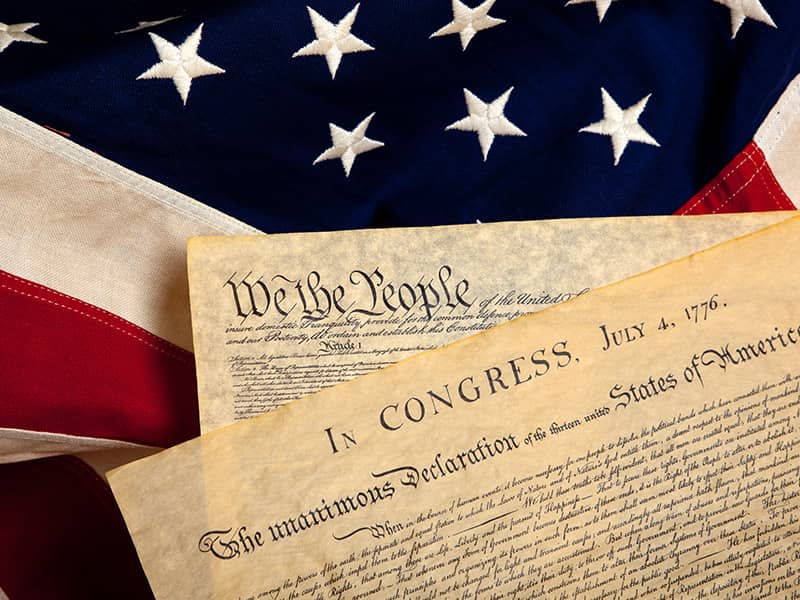No ones doubts that Ashcroft is well to the right of most Americans politically. He favors banning abortion even in cases of rape or incest (he would allow it only to save the life of the woman), whereas polls show that only a minority, even of pro-lifers, takes this position. Ashcroft also backs school vouchers, decidedly rejected in this year's referenda in California and elsewhere. And he favors government "charitable choice" funding, not just for religiously affiliated social-service organizations but also for ones that openly discriminate against those who don't belong to their faith. He demanded Bill Clinton's resignation when polls showed that the overwhelming majority of Americans wanted Clinton to stay on.
In faith terms, Ashcroft is also well to the right of the mainstream: He is a member of the Assemblies of God church, a conservative Pentecostal denomination.
But although many Democrats and some Republicans may be uncomfortable about where Ashcroft falls on the political and religious continuum, why should it be a surprise that George W. Bush, a strong Christian with strong pro-life views, would pick someone with similar philosophies? Knowing what Bush believed, 49% of Americans voted for him. Now, it is only natural that Bush should offer appointments to at least a few others who share his beliefs. No one, after all, was shocked, shocked, when Bill Clinton, a pro-choice centrist, chose as his attorney general Janet Reno, a pro-choice centrist.
If we can set aside the theatrics of opponents claiming to be shocked by the choice of Ashcroft, then the issue becomes: Should he be confirmed?
Next is the question of whether Ashcroft would try to use the Justice Department to pressure the Supreme Court to overturn Roe v. Wade, or would use the attorney general's powers in other ways to skirt Roe privileges. In Wednesday's hearings, Ashcroft said that Roe was "settled law" and that as a legal official he would accept it. He further said he would not file test cases to give the court a chance to change its position on Roe, the way such test cases were created under presidents Reagan and Bush (an important one, the Webster case, involved Missouri when Ashcroft was attorney general there).
On faith issues, some have suggested that since Pentecostalism is a proselytizing denomination, Ashcroft would use the attorney general's post to try to impose his beliefs on others in some fashion. Ashcroft said earlier in the week that "it is against my religion to impose my religion," and that's a true reading of Christianity. One Ashcroft opinion many opponents cite is his backing of a proposed law that would allow the Ten Commandments to be posted in courtrooms. That may be a good or bad idea but wouldn't specifically promote Christianity, since the Ten Commandments are equally sacred to Judaism.
What of Ashcroft's appearance at Bob Jones University, where he called America "a Christian nation" and said of Americans that "we have no king but Jesus"? On Wednesday, Ashcroft told the Senate that the "no king but Jesus" statement was an historical reference: In the decades leading up to the American Revolution, when British tax collectors demanded money to show fealty to the crown, many colonists would declare in refusal that "in this land we have no king but Jesus."
In many ways, the ultimate question of the Ashcroft nomination seems to be whether someone who holds passionate, beyond-the-mainstream religious views should be allowed to take high public office in a nation based on separation of church and state. It's a reasonable question, but consider: If you conclude that Ashcroft shouldn't be attorney general because he belongs to an extreme religious denomination with aggressive views, then you must think Joseph Lieberman shouldn't be in the Senate and shouldn't have run for vice president.
Lieberman's Orthodox Judaism, after all, is an extreme denomination looked on askance even by most Jews, and it is an aggressive faith that damns others unlike itself. And how about Mormons--should they be allowed to hold high office? Maybe they'll try to impose polygamy. And how about Muslims--should they hold high office? Maybe they'd be secretly loyal to the Saudis (if Sunni) or Iran (if Shia). And so on, and so on.John Ashcroft may not be your cup of tea. He's not mine. But to suggest that being a pro-life Pentecostalist disqualifies you from running the Justice Department seems just as narrow-minded as anything Ashcroft has been accused of. Bush won, and he's going to pick people who share his views. Those who don't like it should plan to turn out in 2004.

